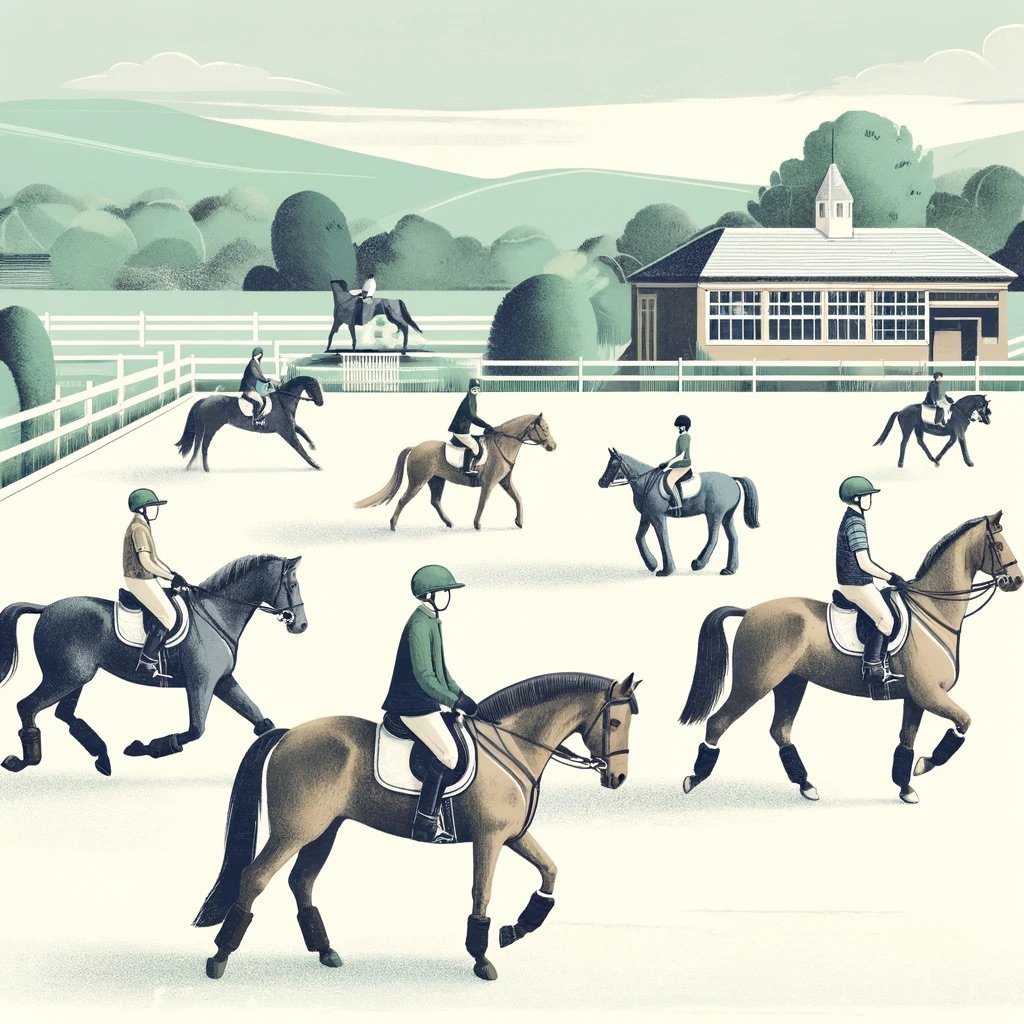The equestrian industry offers a wide range of career opportunities for those passionate about horses. Here’s a guide to various equestrian careers and how to pursue them.
1. Riding Instructor
- Role: Teaching riders of all levels how to ride, improve their skills, and understand horse behavior.
- Qualifications: Certification from recognized organizations (e.g., British Horse Society, Certified Horsemanship Association) and experience in riding and teaching.
- Setting: Riding schools, private stables, or equestrian centers.
2. Equine Veterinarian
- Role: Providing medical care to horses, including diagnosis, treatment, surgery, and preventive care.
- Qualifications: Veterinary degree with a specialization in equine medicine. Licensing and certification vary by country.
- Setting: Veterinary clinics, hospitals, and mobile veterinary services.
3. Stable Manager
- Role: Overseeing the daily operations of a stable, including horse care, facility maintenance, staff management, and budgeting.
- Qualifications: Experience in stable management, horse care, and often a degree in equine studies or business management.
- Setting: Private stables, boarding facilities, and equestrian centers.
4. Professional Competitor
- Role: Competing in equestrian sports such as dressage, show jumping, eventing, or rodeo.
- Qualifications: High level of riding skill, training with experienced coaches, and participation in competitions to gain recognition.
- Setting: Competition arenas, training facilities, and international events.
5. Equine Nutritionist
- Role: Developing and advising on nutritional plans for horses to ensure optimal health and performance.
- Qualifications: Degree in animal science or equine nutrition, and experience in the field.
- Setting: Equine feed companies, veterinary practices, and freelance consulting.
6. Equine Therapist
- Role: Providing physical therapy, massage therapy, or chiropractic care to horses to aid in recovery and performance.
- Qualifications: Certification in equine therapy modalities and experience in horse handling.
- Setting: Veterinary clinics, rehabilitation centers, and freelance practice.
7. Farrier
- Role: Trimming and shoeing horse hooves to maintain their health and support their performance.
- Qualifications: Certification from a recognized farrier school and apprenticeship experience.
- Setting: Freelance practice, stables, and equestrian facilities.
8. Equine Journalist
- Role: Writing and reporting on equestrian events, industry news, and horse care topics.
- Qualifications: Background in journalism or communications and knowledge of the equestrian industry.
- Setting: Equestrian magazines, websites, and freelance writing.
9. Horse Trainer
- Role: Training horses for specific disciplines, behavioral issues, or general riding.
- Qualifications: Extensive riding experience, knowledge of horse behavior, and often certification in training techniques.
- Setting: Training stables, private facilities, and freelance services.
10. Equine Event Planner
- Role: Organizing equestrian events such as competitions, clinics, and exhibitions.
- Qualifications: Experience in event planning, project management skills, and knowledge of the equestrian industry.
- Setting: Equestrian centers, event planning companies, and freelance work.
Conclusion
The equestrian industry offers diverse career paths for those passionate about working with horses. Whether you’re interested in teaching, veterinary care, management, competition, or specialized services, there are numerous opportunities to explore. Pursue the necessary qualifications, gain experience, and follow your passion to build a rewarding career in the equestrian world. Happy riding!











Comments 1